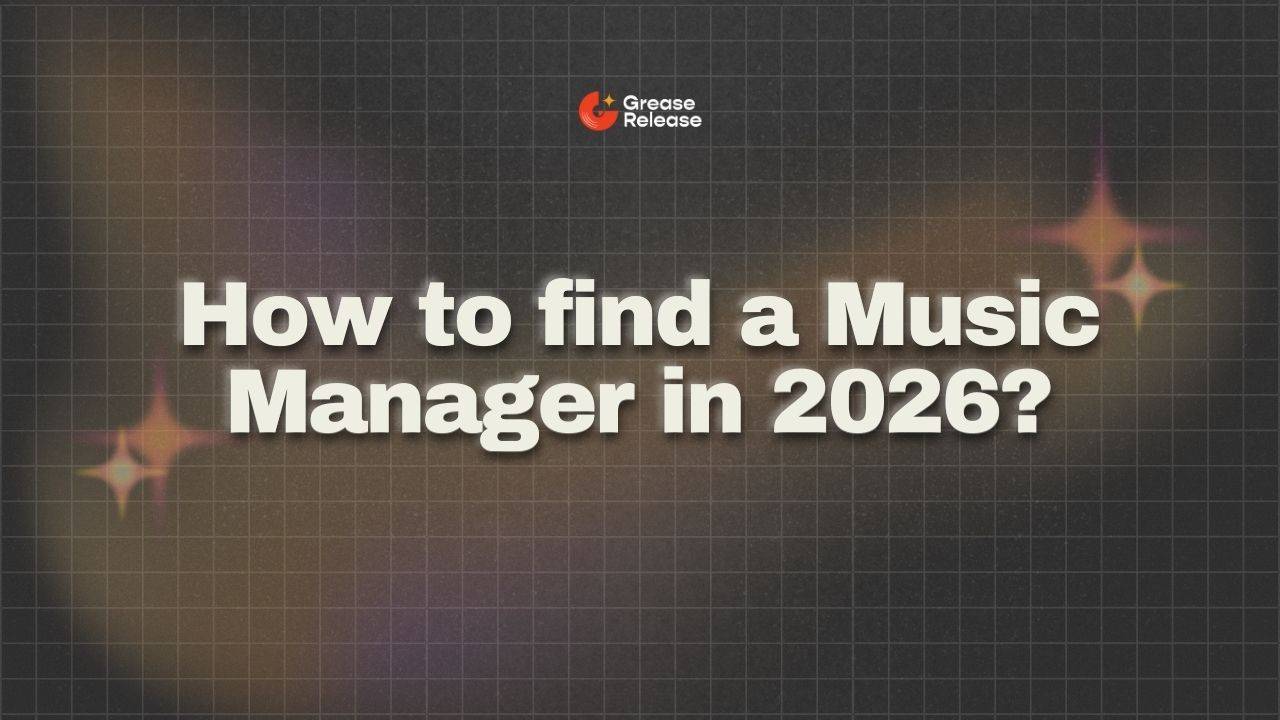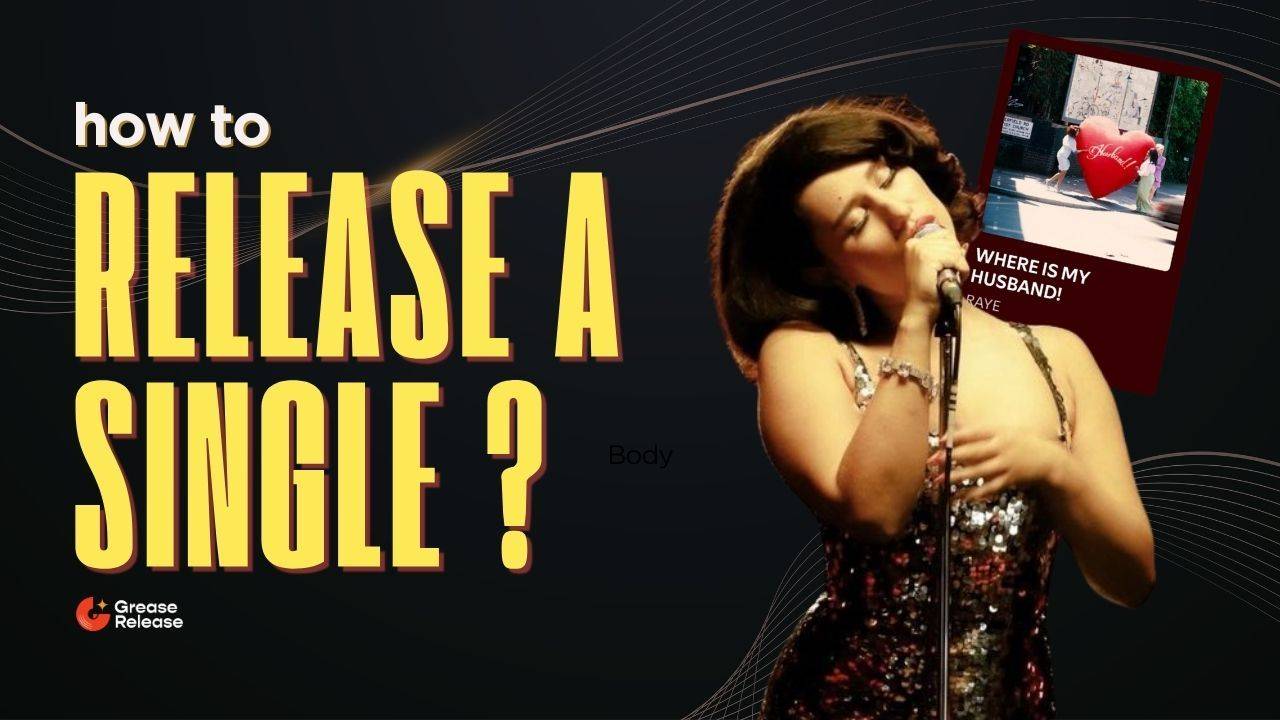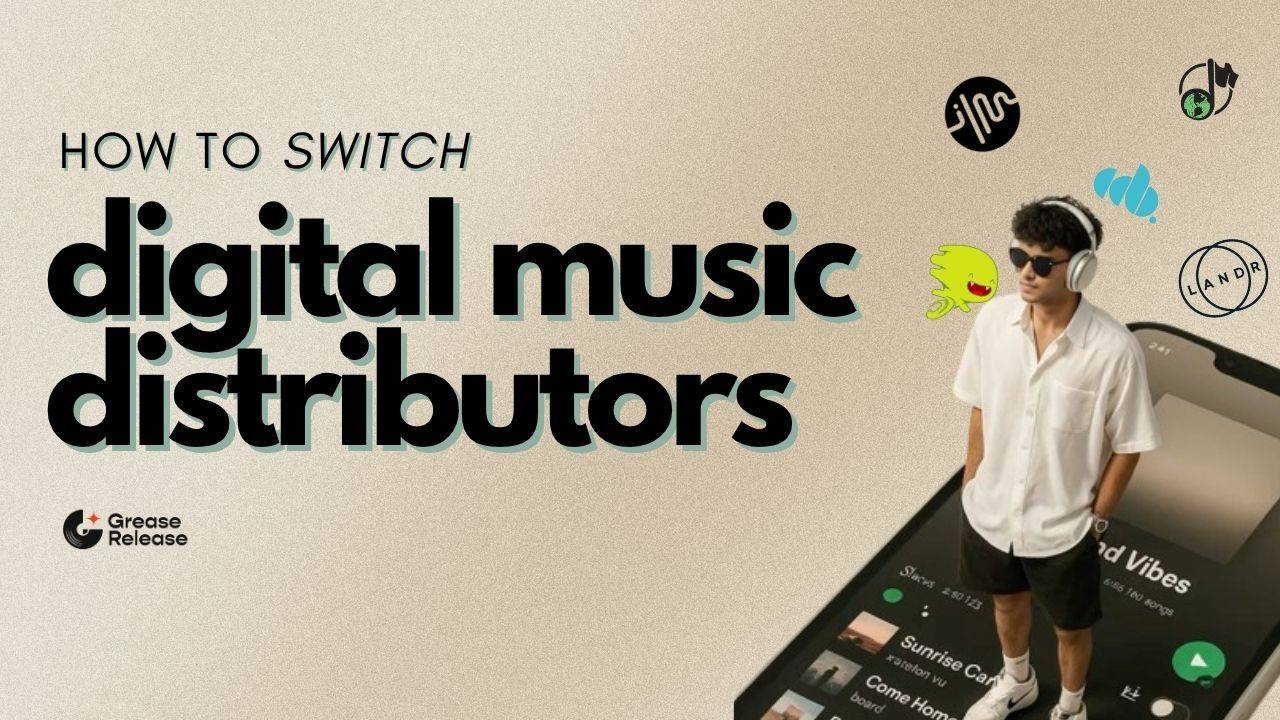
What Are ISRC and UPC Codes?
Sep 24, 2025IRSC and UPC Codes Explained (Simplified)
If you’re releasing music, you’ve probably heard people throw around terms like ISRC and UPC codes. But what do they actually mean? And why do they matter? Well, think of them as your music’s digital fingerprints and ID tags.
More than just scary random strings of numbers - they’re the keys that make sure your songs and albums are tracked, credited, and paid for properly across streaming platforms, download stores, and beyond. Without them, your music could get lost in the system, or worse, your royalties might end up in someone else’s pocket.
Whether you’re an indie artist handling your own releases or a label looking after multiple acts, understanding these codes is essential for getting your music heard, tracked, and monetized the right way.
Let’s break it down so you know exactly what ISRC and UPCs are, and why you need them.
- What Is an ISRC Code?
- What Is a UPC Code?
- How to Get an ISRC Code?
- How to Get a UPC Code?
- ISRC Search: Can You Look Them Up?
- Why IRSC and UPC Codes Actually Matter
- FAQs
- Summary
What Is an ISRC Code?

Every time your track plays on Spotify in London, gets streamed on YouTube in New York, or is synced to a TV ad in Tokyo, it’s your ISRC code that makes sure you’re recognized (and eventually paid).
Here’s the gist:
- What is it? : A unique 12-character identifier that tags a specific recording.
- What does it do? : Tracks sales, streams, and broadcasts globally.
- Why does it matter?: Without it, streaming services don’t know who to pay.
Think of the ISRC as your track’s digital fingerprint or passport stamp. One song, one stamp. But record a remix, live version, or acoustic take? That’s a new passport.
And here’s the kicker: distributors must have an ISRC to release your song. No ISRC = no release. Period.
What Is a UPC Code?

Okay, so we’ve covered individual songs. But what about an album or EP? That’s where UPC codes come in.
If ISRCs are the fingerprints of your tracks, a UPC is the face of the whole project.
- One UPC = one release (album, EP, or even a single packaged as a product)
- Why you need it: Stores like Apple Music and Amazon use UPCs to organize and display your release correctly.
- What it looks like: A 12-digit number—basically a barcode for your music.
Here’s the classic mix-up: artists often confuse ISRC with UPC. Remember this:
- ISRC = one code per track
- UPC = one code per release
That means a 10-track album has 10 ISRCs but just 1 UPC.
How to Get an ISRC Code?
Good news—this part isn’t hard.
- Option 1: Let your distributor (LANDR, Ditto, CD Baby, etc.) assign them automatically. That’s what most indie artists do.
- Option 2: Apply through your country’s ISRC agency (like the RIAA in the U.S.). This is more for labels and artists who want to manage their own catalog.
Steps to Get an IRSC Code Through Your Distributor (Easiest Route)
- If you’re using platforms like LANDR, Ditto Music, CD Baby, or TuneCore, they’ll automatically generate an ISRC code for every track you upload.
- This is the stress-free way most independent musicians handle it. You focus on the music, they handle the codes.
- Bonus: distributors make sure your ISRCs are valid and formatted correctly, so you don’t have to worry about rejections.
Steps to Get an IRSC Code Through an Official Agency (DIY Route)
- If you want more control (say you’re managing multiple releases or running a label), you can register as a label with your country’s ISRC agency.
- In the U.S., that’s the RIAA. Other countries have their own agencies, usually overseen by the IFPI.
- Once you’re registered, you’ll get a “registrant code” that allows you to generate ISRCs yourself for each track.
Pro tip: If a distributor tries to charge you extra for an ISRC, run. These codes are free when you release through legitimate services.
How to Get a UPC Code?
This one’s even more important for your full releases, so let’s clear up how to get a UPC code:
- Option 1 (the easy way): Your distributor will generate a UPC for every release. You don’t have to lift a finger.
- Option 2 (the DIY way): You can license UPCs directly from GS1, the global standards body for barcodes. This makes sense if you’re running a label or managing multiple artists.
Steps To Get a UPC Code Automatically Through a Distributor (Best for Most Artists)
- When you distribute your music through LANDR, DistroKid, CD Baby, or similar services, they’ll assign a UPC to your release.
- You don’t need to apply or pay extra—it's usually included in your distribution plan.
- This is the easiest option for independent artists since distributors handle the technical side.
Steps to Get a UPC Code Directly from GS1 (For Labels and Pros)
- GS1 is the global authority that manages barcodes for all industries, including music.
- You can purchase UPCs directly from GS1 if you want complete ownership and independence.
- This makes sense if you’re releasing music on your own label and want to ensure your UPCs stay consistent across distributors.
Fun fact: even if you’re releasing just one song, you’ll still need a UPC. Why? Because streaming services treat singles as standalone products.
ISRC Search: Where to find ISRC code for a song?
You can perform an ISRC search. This comes in handy if you’re moving your catalogue to a new distributor and need to keep your original codes (to make sure your streams and stats carry over).
Some national agencies and distributors offer searchable ISRC databases. Just don’t expect a Spotify-style search bar, it’s more “Excel spreadsheet” than “fancy app.”
Here is exactly all the places you can find ISRC code for a song:
Through Your Distributor
- Most distributors show your assigned ISRC codes in your release dashboard.
- If you’ve previously released a track and are reusing it (say, adding a single to an album), you can pull the original ISRC from there.
Through National ISRC Databases
- Some countries, like the U.S. (RIAA) or Canada (Connect Music Licensing), provide official ISRC search tools.
- These let you look up codes by track name, artist, or registrant.
Third-Party ISRC Lookup Services
- A handful of third-party tools like ISRC Finder allow ISRC lookups, though they’re not always complete or up to date.
- Useful when double-checking codes before migrating your catalog to a new distributor.
Why This Stuff Actually Matters
Here’s the part that too many artists overlook: ignoring ISRC and UPC codes means leaving money on the table.
- No ISRC? Your streams won’t be tracked, and you won’t get paid.
- No UPC? Your album won’t even show up correctly in stores.
- Wrong code? You risk splitting royalties, losing chart eligibility, or confusing streaming platforms.
And let’s be real: the music industry is already complicated enough without you accidentally sabotaging your own release.
FAQs
1. Do I need both ISRC and UPC codes to release music?
Yes. ISRC codes identify each individual track, while a UPC code identifies the full release (album, EP, or single). Without both, your music won’t be tracked or displayed correctly on streaming platforms.
2. Are ISRC codes and UPC codes free?
Most distributors (like DistroKid, CD Baby, TuneCore) provide free ISRC and UPC codes with your release. However, if you want to register and generate them yourself, you can apply through your national ISRC agency (for ISRCs) or GS1 (for UPCs).
3. Can I use the same ISRC code for a remix or live version?
No. Every version of a recording needs its own unique ISRC code. A remix, acoustic take, or live performance is considered a new recording and must have a separate ISRC.
4. How many ISRC codes does an album need?
An album needs one ISRC per track. For example, a 10-song album requires 10 ISRCs, plus one UPC for the album itself.
5. Do singles need a UPC code?
Yes. Even a single is treated as a standalone product by streaming services, so it requires its own UPC code in addition to an ISRC.
6. Where can I look up ISRC codes?
You can usually find your ISRC codes in your distributor’s dashboard. Some official agencies (like the RIAA in the U.S. or Connect Music Licensing in Canada) also provide ISRC search tools.
7. Can I release music without ISRC or UPC codes?
No. Platforms like Spotify, Apple Music, and YouTube require these codes for proper tracking and royalty payments. No ISRC = no royalties. No UPC = your release won’t show up correctly.
8. Should I buy my own UPC codes from GS1?
If you’re an independent artist, letting your distributor assign UPCs is easiest. But if you run a label or want total ownership across multiple releases, purchasing UPCs directly from GS1 can make sense.
Summary
So, what is a UPC? It’s your release’s barcode.
What is an ISRC code? It’s your track’s digital fingerprint.
Both are essential. Both are non-negotiable. And both can make or break how your music lives online.
The best part? You don’t need to stress about it. Distributors handle this for you, and if you ever want full control, the option’s there.
At the end of the day, these codes aren’t just technicalities—they’re how you make sure your music is heard, tracked, and paid for in the digital world.
We at GreaseRelease, have a bunch of curators on our network who are looking for new & exciting music to push on their massive playlists. If you make music and want to reach a wider audience, check out our submission platform and get a chance to reach millions of listeners! Submit your tracks now!
Don't miss my newsletter!
Join me on a music entrepreneurship journey with new tips and tricks delivered straight to your inbox.
We hate SPAM. We will never sell your information, for any reason.




